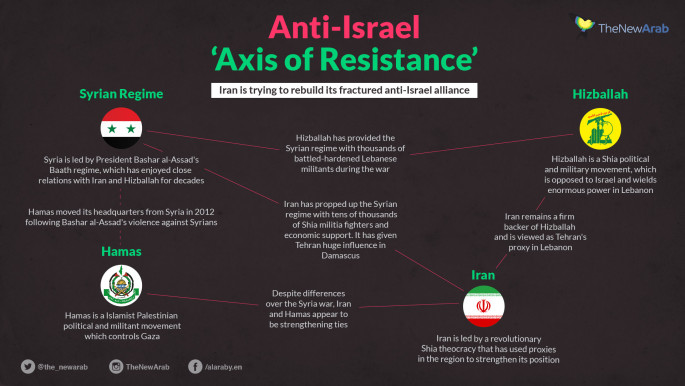Washington offers reward for Hizballah leaders, warning of potential 'US attacks'
Fuad Shukr is accused of playing a "central role in the planning and execution of the 1983 US Marine Corps Barracks Bombing in Beirut" which killed 241 personnel and now has a $5 million bounty on his head.
Talal Hamiyeh is described by a US wanted poster as "Hizballah's head of External Security Organisation" responsible for the "planning, coordination and execution of terrorist attacks outside Lebanon", with a $7 million reward for information leading to his capture announced.
New threat
The news of the bounties was first reported Monday by an Israeli newspaper, but a new announcement by officials alludes to an expansion of US anti-terror focus on groups such as al-Qaeda, to now potentially include Hizballah and other Iranian-backed organisation.
On Tuesday, the US Director of the National Counter-terrorism Center Nicholas J. Rasmussen said he believed Hizballah was planning attacks in the US.
"It is our assessment that Hizballah is determined to give itself a potential homeland option as a critical component of its terrorism playbook," he told a press conference.
Hizballah were a key focus for US anti-terror efforts until the 11 September attacks in 2011, which saw the CIA's efforts focus primarily fall on Salafi-jihadi organisations such as al-Qaeda and later the Islamic State group.
With the proliferation of Iranian-backed militias in the region - such as Hizballah and the Fatimiyoun Brigades in Syria and the Hashd al-Shaabi in Iraq - some analysts have warned of a new threat to US allies and civilians from these armed groups.
Bad memories
The 1983 bombing of a Marines barracks in Beirut was the single biggest death toll in one day for US forces since the Second World War and led to a withdrawal of US forces out of war-torn Lebanon.
 |
| [click to enlarge] |
It is believed to have been carried out by Hizballah with Syrian and Iranian regime support.
On Tuesday, Israel's far-right Defence Minister Avigdor Lieberman described Lebanon's army as an "inseparable part" of Hizballah.
The Lebanese movement's leader Hassan Nasrallah has ramped up rhetoric against the US in recent months saying its actions were "aiding" the Islamic State group.
Iran has also seen a resurgence of conservative attempts to reassert control in the Tehran regime following a recent detente in relations with the US.
Hizballah and Iran have been key backers of Syrian President Bashar al-Assad's regime with pro-Damascus forces winning back key areas in the country from opposition forces.
Hizballah's role in the war has been key and given it better supply links with backers Syria and Iran, more battlefield experience for its fighters, and new weaponry, analysts have said.
Israel has warned of Iran and Hizballah's presence in southern Syria launching air strikes on militants during the six-year war in the country.





 Follow the Middle East's top stories in English at The New Arab on Google News
Follow the Middle East's top stories in English at The New Arab on Google News

![Israeli forces ordered bombed Gaza's Jabalia, ordering residents to leave [Getty]](/sites/default/files/styles/image_330x185/public/2176418030.jpeg?h=a5f2f23a&itok=_YGZaP1z)
